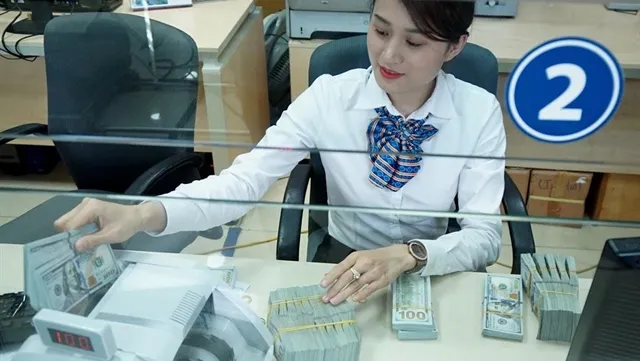Firms advised to use derivative instruments to minimise exchange rate risks
by ,http://vietnamnews.vn/economy/536306/firms-advised-to-use-derivative-instruments-to-minimise-exchang03 October 2019 Last updated at 08:22 AM


According the central bank’s new regulation, banks have been banned from lending in foreign currency to pay for imports since October 1 this year in a bid to limit dollarisation in the local economy. From that date, instead of borrowing foreign currency from banks, firms have to buy it from banks.
The regulation applies to both domestic banks and branches of foreign banks in Viet Nam lending to anyone who is a Vietnamese resident.
Previously, importers were allowed to take out loans in foreign currencies to pay for imports if they could prove they can generate enough foreign currency from their production and trading revenues to repay these loans.
Cấn Văn Lực, Chief Economist of the Joint Stock Commercial Bank for Investment and Development of Vietnam (BIDV), said currently, many banks have provided derivative instruments so firms which want to buy foreign currencies in the future can use forward contracts. This tool helps reduce risks for firms because future exchange rates have been determined from the beginning.
According to Lực, the policy to stop foreign currency loans is in the anti-dollarisation roadmap and was announced early in the year so credit institutions have had time to prepare for the application of the new policy.
In general, he said, the relatively stable macro economy, low inflation and stable exchange rate have contributed to improving the confidence in the value of the Vietnamese đồng, which is expected to continually help reduce the hoarding of the US dollar. The new policy thus will not cause difficulties for both banks and firms, but the central bank and commercial banks should still create a foreign currency trading market with better liquidity to further help firms and individuals in meeting their foreign currency demands.
The ban on foreign currency lending also helps raise the competitiveness of domestic goods and firms, experts said.
Banking expert Nguyễn Trí Hiếu said the new regulation would level the playing field between enterprises producing for domestic consumption and those importing for export production. Earlier, only the latter was privy to dollar loans that generally have lower interest rates than đồng loans. Therefore, the ban would encourage production with domestic materials, he said.
Besides, this will also help restrict the import of luxury goods, one of the main factors causing trade deficit and macro-instability, especially towards the end of the year when demand for import of consumer goods puts pressure on liquidity in the forex market.
The SBV aims to reduce the proportion of foreign currency in total outstanding debt to below 7.5 per cent in 2020, below 5 per cent in 2030, and to stop lending in foreign currency altogether by 2030. The ratio currently stands at 8.73 per cent, which the central bank estimates at around VNĐ176.47 trillion (US$7.59 billion). VNS





